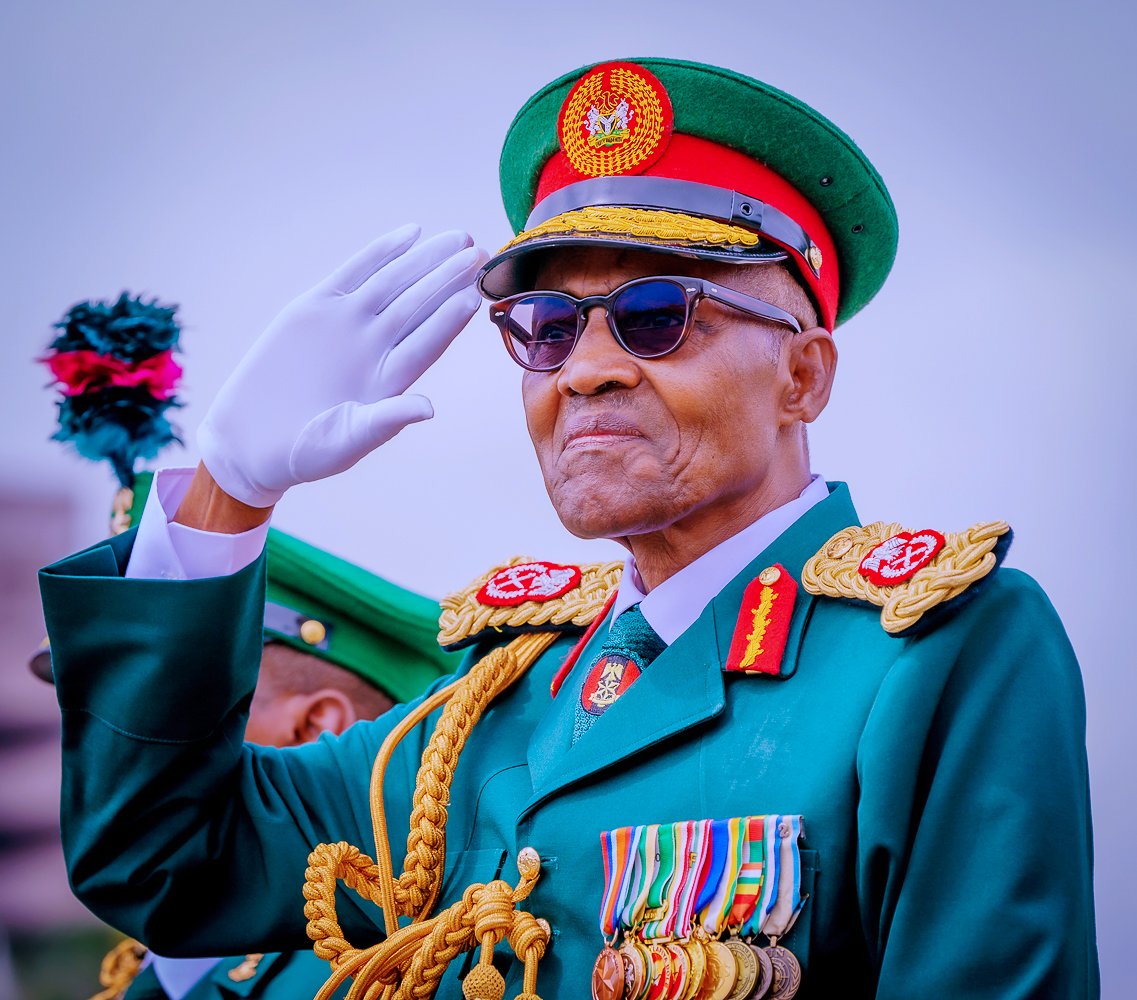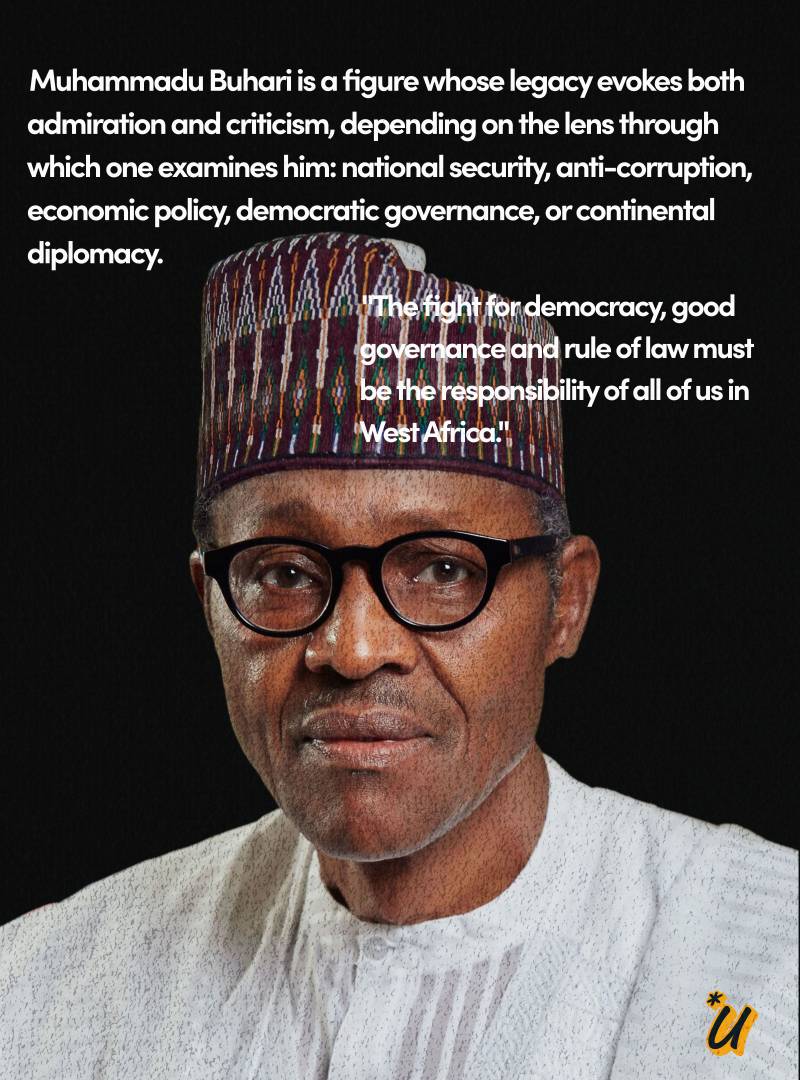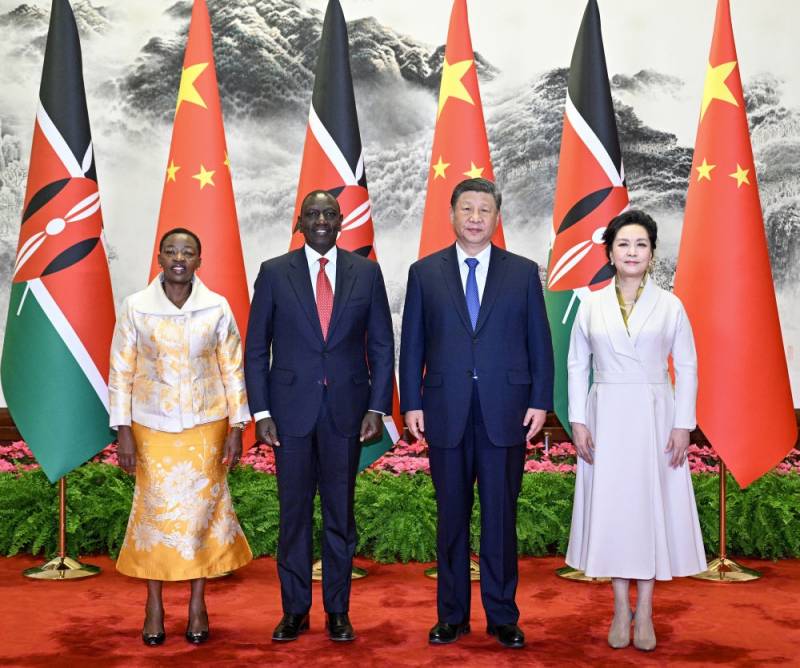In a nation where leadership is often defined by flash and controversy, Muhammadu Buhari stood as a paradox, quiet, austere, yet deeply imprinted in Nigeria’s history. Born in 1942 in Daura, Katsina State, Buhari’s journey from a village boy to a national figure was not accidental; it was a testament to discipline, endurance, and a stoic belief in order over chaos. As a young man, Buhari’s path was carved early through military training. He joined the Nigerian Army at just 19, quickly rising through the ranks, not because of political connections, but through what peers described as “an unflinching commitment to duty.” He was not the most charming officer, nor the most politically savvy, but he was always the most prepared.
His years in the army shaped not just his career but his worldview: that Nigeria needed structure, rules, and a firm hand. In December 1983, when Nigeria’s Second Republic faltered under economic collapse and corruption, Buhari emerged not as a politician but as a military leader who believed he had to rescue the nation. His military regime, which lasted from 1983 to 1985, was as controversial as it was memorable. Nigerians recall the era of the War Against Indiscipline (WAI), during which queues were enforced, sanitation was prioritized, and national pride was rigidly promoted. To some, he was the tough love Nigeria needed; to others, an authoritarian unwilling to bend.

Related article - Uphorial Podcast

When he was overthrown in 1985, many thought Buhari’s chapter in Nigeria’s leadership story had closed. But destiny had other plans. After decades in political wilderness, he returned, not as a soldier, but as a democrat. It took four failed presidential bids before he clinched victory in 2015, becoming Nigeria’s first opposition candidate to unseat a sitting president through democratic elections. This marked a pivotal moment, not just for Buhari but for Nigeria’s democracy itself. As a civilian president, Buhari remained who he had always been: focused, frugal, and often emotionally distant from the trappings of political flamboyance. He was not the typical politician; his speeches were sparse, his presence often subdued. But his agenda was clear: fight corruption, secure the nation, and revive the economy.
His presidency, however, was not without shadows. His anti-corruption war was often criticized as selective. The economy struggled, security challenges persisted, and critics accused him of being out of touch with modern governance’s demands. Yet, in his defense, Buhari was never one to dance to popular tunes. He governed with the detachment of a soldier who believed he knew best, even when popular sentiment said otherwise. What truly defined Buhari was his discipline. Unlike many leaders who amassed visible wealth, Buhari’s image as a leader who led a simple life remained largely intact. He wore the same modest traditional attire, lived quietly, and maintained an almost ascetic lifestyle that baffled both critics and admirers.
In death, as in life, Buhari’s legacy sparks debate. Was he the austere patriot who tried to steer Nigeria toward discipline and stability? Or was he the leader who failed to evolve, clinging to outdated ideals in a rapidly changing world? Perhaps he was both, a reflection of Nigeria itself: complex, burdened by history, yet constantly striving. Buhari’s story is not just about governance. It is about identity. About a man who believed in Nigeria’s potential long before many did. A leader who remained stoic through the noise, who believed that leadership was service, not showmanship. As Nigeria reflects on Muhammadu Buhari’s life from 1942 to 2025, one truth remains undeniable: he left a mark. Not everyone admired it, not everyone understood it, but no one can ignore it. His was a life of service, sacrifice, and unwavering belief in a nation he called home.



